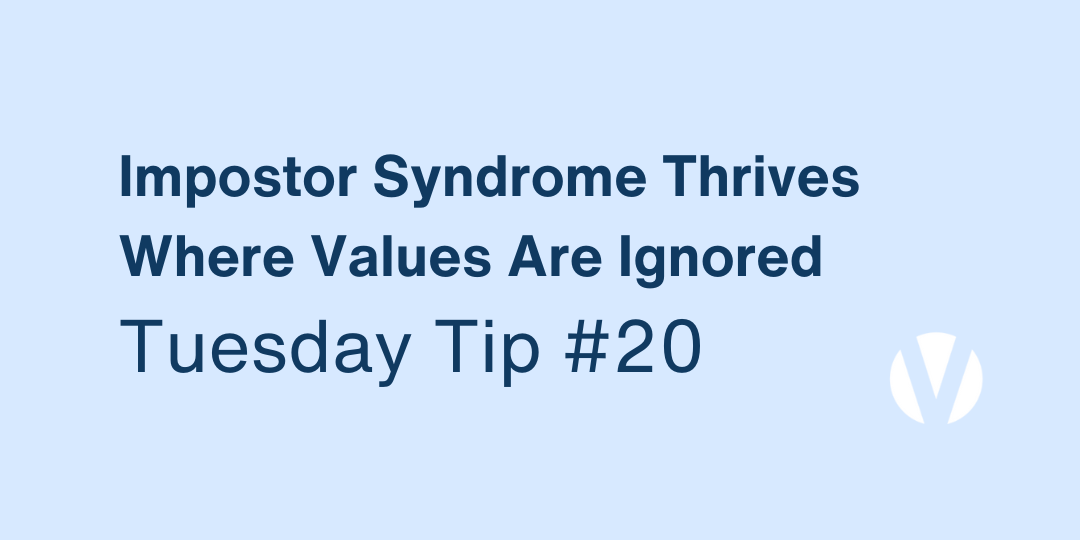Impostor Syndrome Thrives Where Values Are Ignored (Tuesday Tip #20)

Impostor syndrome can be framed as a personal flaw, especially by ourselves. You doubt your abilities and convince yourself that you’re not good enough. This story catastrophizes in your own mind because you lack confidence. You tell yourself that you need to believe in yourself more. You need to stop being so self-critical. You need to fake it until you make it.
But what if the issue isn’t confidence at all?
What if the discomfort you feel isn’t about your capabilities, but about something deeper? Something like your values and what matters most.
You Might Not Be the Problem
Impostor syndrome doesn’t only show up when you’re unqualified. Some of the most capable, thoughtful, and conscientious people experience it regularly. They deliver results, exceed expectations (their own and those of others), and still feel like they don’t belong.
Often, this has less to do with performance and more to do with misalignment.
If you’re in a space that rewards values you don’t share, it makes sense that you feel out of place. If your environment emphasizes competition, but you care about collaboration, your approach might be undervalued. If success is defined by status or visibility, but you care about purpose and impact, your contributions might go unnoticed.
Over time, this mismatch creates friction. You start to internalize the idea that you are the problem. That you are not enough. That you are somehow faking it.
But the real issue might be that your values are being overlooked or suppressed.
Confidence Comes From Congruence
Confidence grows in environments where your values are reflected, respected, and rewarded. When you are encouraged to lead in ways that feel natural to you. When the things you care about are not just tolerated, but seen as strengths.
You might not need a different mindset. You might just need a different context.
This doesn’t mean the answer is always to leave. Sometimes it means being clearer about what matters to you. Sometimes it means reshaping your role, reframing your goals, or speaking up about what you value.
The more your environment reflects who you are, the less you feel like an impostor. Not because you’ve changed, but because you no longer feel like you have to pretend.
A Question to Reflect On
If impostor syndrome has been a steady presence in your life, pause and ask yourself this:
Is the problem really that I do not belong here? Or is it that the things I value most are not being seen, shared, or supported?
The answer might not silence every doubt. But it might help you shift from questioning your worth to questioning the fit. And that shift can be the beginning of something much more honest.
Every Tuesday, we offer Tuesday Tips on the Values Identifier Facebook page and here in blog form. These tips offer thoughts and ideas to help you live a life more aligned with your values.





